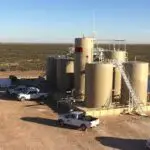In our fast-paced modern world, the efficient management of resources has become a critical aspect of ensuring a sustainable future. One such resource that often goes unnoticed, yet possesses immense potential, is waste oil. Derived from various sources such as vehicles, industrial machinery, and cooking processes, waste oil is often dismissed as a useless byproduct. However, with the right approach, waste oil can be transformed into a valuable asset, contributing to environmental conservation, economic benefits, and innovative solutions.
What is Waste Oil?
Waste oil can be defined as any oil that is contaminated and not suitable for use. It can also be a wide range of oils that have been used and discarded due to their degraded quality. This includes engine oils, hydraulic fluids, cooking oils, spilled oil, bottom sediments of oil tankers, and industrial lubricants.
The oil that has lost its original properties or is compromised and unsuitable for the original purpose is termed waste oil. Oils that are off-specification and contain Arsenic> 5 ppm, Lead> 100 ppm, Cadmium> 2 ppm, Chromium> 10 ppm, Flash point> 100°F, and total Halogens >4,000 ppm can be termed as waste oil
What is a Used Oil?
Used oil means any petroleum-based oil or synthetic oil that has been used previously and due to that is contaminated by physical or chemical impurities. Typical examples of used oil are old motor oil, brake fluid, transmission oil, hydraulic oil, and gearbox oil.
Waste Oil Disposal
The improper disposal of waste oil can lead to severe environmental consequences, including soil and water contamination, air pollution, and harm to wildlife. Thus, finding sustainable solutions for waste oil management is imperative.
Disposing of waste oil offers various methods, including transporting the used oil to off-site facilities (such as local garages and waste disposal centers with proper permits), utilizing used oil as a fuel source (some used oil adheres to burner standards, while off-specification used oil is limited to burning in specific industrial furnaces, boilers, and authorized hazardous waste incinerators), and engaging in the marketing of used oil.
Recycling of Waste Oil: A Pathway to Sustainability
Recycling waste oil is one of the most effective methods to reduce its environmental impact. Through a comprehensive process of re-refining, waste oil can be purified and restored to a level where it can be reused as a base oil for lubricants or blended into new fuels. This approach not only conserves valuable natural resources but also minimizes the need for virgin oil production, reducing greenhouse gas emissions and energy consumption.
Reusing Waste Oil Creatively
Beyond recycling, waste oil can be repurposed in innovative ways. Waste oil can serve as a source of energy through processes such as energy recovery or biodiesel production. Biodiesel, derived from waste cooking oils and other waste oil sources, offers a cleaner-burning alternative to traditional diesel fuel. Industries and individuals can adopt biodiesel for transportation, reducing their carbon footprint and dependency on fossil fuels.
Economic Benefits
Embracing waste oil recycling and repurposing initiatives also brings about economic advantages. Re-refined waste oil can be cost-competitive with virgin oils, offering a viable option for industries seeking quality lubricants at reduced prices. Furthermore, the biodiesel industry has the potential to create new jobs, stimulate local economies, and contribute to energy independence.
Environmental Stewardship
The responsible management of waste oil aligns with the principles of environmental stewardship. Recycling and reusing waste oil reduces the demand for new oil extraction, lowering the risk of habitat destruction, oil spills, and other ecological disasters associated with oil drilling. Moreover, properly managed waste oil prevents pollution of our natural resources, ensuring a cleaner environment for present and future generations.
Waste Oil Heating
Waste oil heating refers to the process of utilizing waste or used oil as a fuel source to generate heat. This approach involves repurposing discarded oils, such as used motor oil or industrial lubricants, to provide warmth and thermal energy for various applications. Waste oil heating systems are commonly employed in industrial settings, workshops, and even some residential spaces, offering a cost-effective and environmentally conscious way to manage both energy needs and waste disposal.
Waste Oil Burning
Waste oil burning involves the controlled combustion of waste or used oil to produce heat or energy. This process typically takes place in specially designed equipment known as waste oil burners or furnaces. Properly managed waste oil burning can provide a source of heat, often for space heating, industrial processes, or even electricity generation. It is crucial to adhere to safety and environmental regulations when engaging in waste oil burning to minimize air pollutants and ensure efficient combustion.
Waste Oil Furnace
A waste oil furnace is a specialized heating device designed to burn waste or used oil as a primary fuel source. These furnaces are engineered to safely and efficiently convert waste oil into heat, which can be used to warm buildings, heat water, or power industrial processes. Waste oil furnaces typically include features that ensure complete combustion, emission control, and safety measures to prevent hazards associated with improper burning.
Waste Oil Burner
A waste oil burner is a component of a waste oil heating or burning system responsible for atomizing and igniting the waste oil to generate heat. These burners are engineered to handle the unique characteristics of waste oil, such as its viscosity and impurities, ensuring efficient combustion while minimizing emissions. Waste oil burners come in various designs, including air-atomizing burners and pressure-atomizing burners, each tailored to specific applications and heating requirements.
Conclusion
Waste oil may seem inconsequential at first glance, but its potential for positive impact is far-reaching. By adopting recycling, reusing, and innovative approaches, waste oil can be transformed into a valuable resource that contributes to sustainability, economic growth, and environmental preservation. As individuals, industries, and governments join forces to manage waste oil responsibly, we take a significant step toward building a more resilient and harmonious future for our planet. It’s time to recognize the hidden value of waste oil and harness its potential for the greater good.






